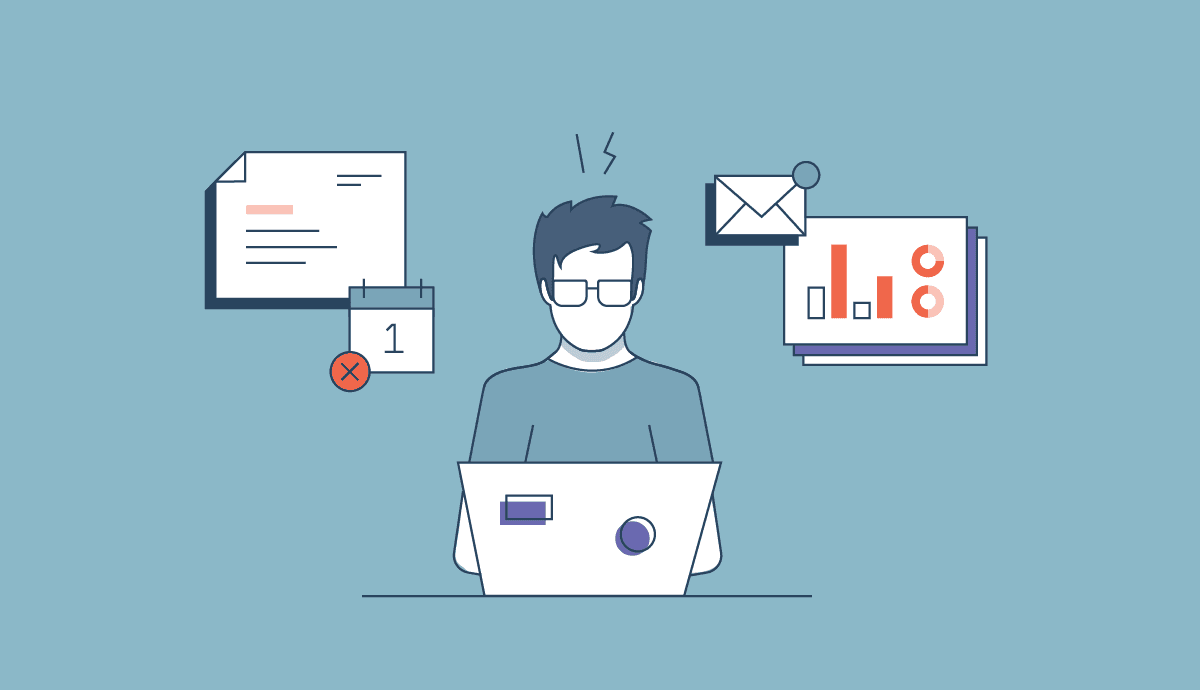
Engineering leadership | Blog Post
Six Ways to Tackle Software Engineer Burnout
Linzi Nield
Share this post
We’re living through one of the most stressful times in a generation, and software engineer burnout has never been more top of mind for engineering orgs. Leaders can find themselves caught between the demands of their organization and the needs of their engineers. But ignoring mental health concerns can come at a steep cost, eating away at productivity and ultimately compelling your engineers to quit.
“As employers, I think we are in a very unique position to help our employees through this era of uncertainty by providing as many resources and as much emotional support as we can,” says Kerri McKinney, Terminal’s Global Head of Talent. “Especially because remote work comes with its own set of challenges.”
So how can companies promote a healthy work-life balance? Mai Irie, Director of Engineering at Spring Health, sat down with McKinney in a recent webinar to discuss what engineering leaders can do.
Use your observations to start a conversation
Encourage your managers to start one-on-one conversations if there’s a specific reason they’re concerned (late nights, an impact event outside of work, negative interactions between colleagues, or engineers simply looking a bit frazzled). Start the conversation with that observation, grounding it in your motivation to truly support your engineer. “Know that it might take more than a few conversations—the person may have been burned before by speaking up or is still processing the situation,” says Irie. Solving software engineer burnout starts by being tuned in with your team.
Be careful of how you express gratitude
Your engineers work hard, and it’s only natural to want to commend their efforts when they go above and beyond. But employees notice what behaviors you celebrate, and it can have an impact on your culture. “Pay attention to whether or not you’re exclusively expressing gratitude for people who are firefighting or working on the weekend. It can engender negative sentiment towards leadership,” says Irie. “Engineers will start to feel like they’ll have to work extra hours in order to be a good employee and get that next promotion or opportunity, because that’s what getting recognized. Instead, make sure you’re expressing gratitude for the small things as well.”
Weaponizing your company mission can create burnout
Many engineers love working for a mission-driven company because they like being able to tie their work to a greater cause. But if your company has a mission, be careful not to use it to manipulate your engineers into working more hours than is reasonably sustainable. “If you’re part of a mission-driven organization, you really need to take special care not to burn out your folks in service of the mission,” says Irie. “Focus on impact and outcomes instead of the output.”
Plan ahead for software engineers being out of office
It’s much easier to be generous with flexible schedules and time off when you have a backup plan. “Take an hour every couple of weeks to think about how you would approach coverage for the team if somebody needed to be out for an extended period of time,” says Irie. “Shoot for about eighty percent coverage for critical functions, think about what would need to get prioritized, and come up with a game plan for who would need to absorb these responsibilities. This way you don’t have to get too stressed if someone needs to take time off.”
Encourage the use of sick time
One in five engineers have had to take time off from work due to mental health issues — and as an employer, you should be encouraging them to do so. “Employees have a harder time taking off work when they work remotely. They feel like because they’re already home, so they should just push through,” says McKinney. Irie agrees. “Sick time doesn’t have to mean that you are so physically ill that you’re unable to function and work,” she says. “So many times in my career I’ve seen both engineering leaders and engineers model (and even sometimes brag about—hero culture!) working while sick with the flu, a fever, etc.”
Start using cooldown sprints
Sometimes, your engineers will have to work extra hours, like in the lead up to a launch. Restore balance by giving them a lighter workload afterwards. “I like to do a cooldown sprint push after a big push so that engineers aren’t immediately thrown into the next big project,” says Irie. “Give engineers the chance to tackle some tech debt, take some time for fun team bonding, and give folks a chance to decompress and recharge. I’ve found that engineers think cooldown sprints are satisfying. They enjoy the opportunity to handle tech debt.”
Solve software engineer burnout by taking care of your developers
Software engineer burnout is a serious problem and remote work has a tendency to exacerbate its effects. Blurred lines between work life and home life can make it harder for your engineers to turn off. By giving your developers some breathing room, you’ll not only support your teams through a trying time, you’ll also give your company’s retention and productivity a boost in the process. “Engineers in particular are at risk for mental health issues and leaders really need to step up and make sure that they’re taking care of them,” says McKinney.”


